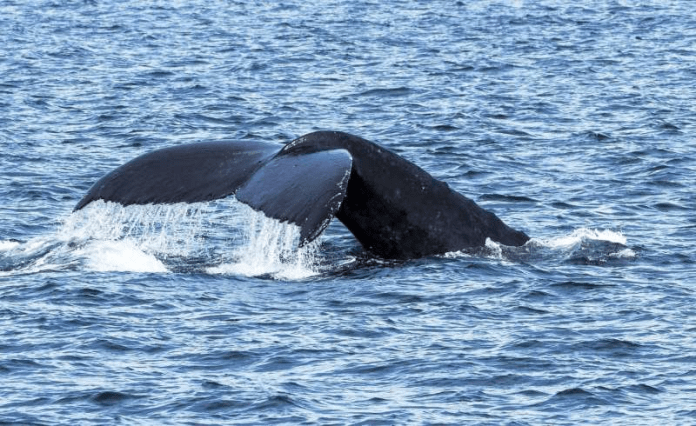Blue whales ingest about ten million pieces of microplastic daily, according to recently published estimates, which show that this pollution has a greater impact than previously thought on the largest animal in the world.
Small plastic fragments have been found both in the depths of the oceans and on the tops of mountains, and even inside human organs and blood, reports a local Arabic daily.
A number of researchers conducted a modeling study published in the journal Nature Communications aimed at estimating the amount of microplastics ingested by whales.
For this purpose, scientists placed a kind of label on 191 bluefin and humpback whales that live off the coast of California to track their movements.
“It’s like (Apple Watch) on the back of a whale,” said lead author of the study, researcher at California State University at Fullerton Sherrill Kahane Raport.
The whale specialist told AFP that the data collected showed that these animals feed mainly at depths ranging from 50 to 250 metres, where “the largest concentration of microplastics is found in the water column”.
Then, by modeling three scenarios, the researchers estimated the whales’ daily ‘bites’, the size of each, and what they were filtering. In the most likely scenario, blue whales ingest up to 10 million microplastics per day.
The study suggested that the largest animal that lived on Earth would be the largest consumer of microplastics, consuming up to 43.6 kilograms per day.
Although this number automatically leads to the belief that whales ingest large amounts of microplastics as they make their way across the ocean, the researchers found that this is not the case. In fact, 99 percent of these microplastics entered the bodies of whales because they were already inside their prey.
Report said this was “worrying” because humans also eat these prey. “We also eat anchovies and sardines,” she said, adding that “krill (small crustaceans shaped like shrimp) are the base of the food web” in the marine food chain, she added.
The scientist recalled that previous research showed that krill eat microplastic particles if they are present in a tank containing them. The researchers are trying to determine the extent of the damage caused by the plastic particles ingested by whales, after they estimated the amount.























